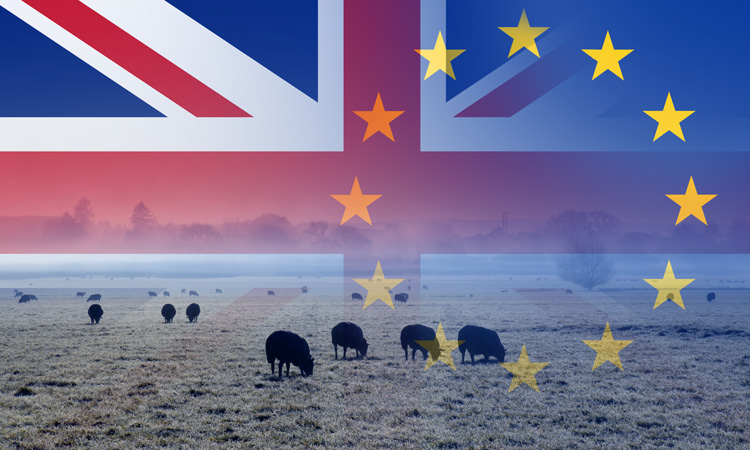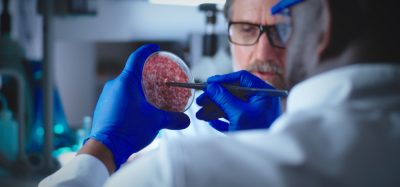UK plans to use EU food safety regulations post-Brexit
- Like
- Digg
- Del
- Tumblr
- VKontakte
- Buffer
- Love This
- Odnoklassniki
- Meneame
- Blogger
- Amazon
- Yahoo Mail
- Gmail
- AOL
- Newsvine
- HackerNews
- Evernote
- MySpace
- Mail.ru
- Viadeo
- Line
- Comments
- Yummly
- SMS
- Viber
- Telegram
- Subscribe
- Skype
- Facebook Messenger
- Kakao
- LiveJournal
- Yammer
- Edgar
- Fintel
- Mix
- Instapaper
- Copy Link
Posted: 4 December 2019 | Sam Mehmet (New Food) | No comments yet
The UK is set to implement the smarter rules for safer food (SRSF) package, a set of EU regulations for the protection against animal disease and plant pests, regardless of the Brexit outcome.


The Department for Environment Food & Rural Affairs (Defra) has stated that the smarter rules for safer food (SRSF) package is a set of EU regulations for the protection against animal disease and plant pests. The package aims to modernise, simplify and improve existing health and safety standards for the agri-food chain. It will take a risk-based approach to animal, plant and public health protection, introducing more efficient pest and disease control measures.
The package includes three principal EU regulations:
- Official Controls Regulation (EU) 2017/625: how controls across the agri-food chain will be monitored and enforced – applies from 14 December 2019
- Plant Health Regulation (EU) 2016/2031: controls for protecting plants from disease and pests – applies from 14 December 2019
- Animal Health Regulation (EU) 2016/429: a framework for the principles of European animal health – applies from 21 April 2021.
The new Plant Health and Official Controls regulations will apply to the UK while it is a member of the EU and during any transition period. If the UK leaves the EU without a deal, these two regulations will be retained by the Withdrawal Act and will continue to apply subject to any amendments Parliament may agree.
Collectively, the package will replace over 70 existing European directives and regulations, hoping to simplify legislation and making it easier to use for everyone involved.
EU Official Controls Regulation 2017/625
The new EU Official Controls Regulation (OCR) sets out mechanisms for ensuring that responsible persons and authorities enforce the rules and must verify that businesses are complying with the legal requirements. It explains what action enforcement authorities must take when they spot such non-compliance. This covers:
- Food and food safety, integrity and wholesomeness at any stage of production, processing and distribution of food
- Feed and feed safety at any stage of production, processing and distribution of feed and the use of feed
- Animal health requirements
- Prevention and minimisation of risks to human and animal health emerging from animal by-products and derived products
- Welfare requirements for animals
- Protective measures against pests of plants
- Requirements for the placing on the market and use of plant protection products and the sustainable use of pesticides, with the exception of pesticides application equipment
- Organic production and labelling of organic products
- Use and labelling of protected designations of origin, protected geographical indications and traditional specialities guaranteed
- Deliberate release into the environment of Genetically Modified Organisms (GMOs) for the purpose of food and feed production.
EU Plant Health Regulation 2016/2031
The EU Plant Health Regulation (PHR) aims to help agriculture and forestry sectors remain sustainable and competitive, as well as protecting domestic biodiversity and ecosystems. The new EU PHR sets out controls and restrictions that will apply to imports and internal movement of certain plants, plant pests, and other materials like soil.
The SRSF package revises and improves the current EU plant health legislation. This will protect domestic agriculture, horticulture, forestry, parks, gardens and the environment by preventing the entry of harmful plant pests and diseases.
EU Animal Health Regulation 2016/429
As the Animal Health Regulation (AHR) applies on 21 April 2021, after the UK has left the EU, and after the proposed Implementation Period, the UK does not have an obligation to implement the legislation. However, the UK broadly supported the AHR as a major step towards simplifying and improving animal health legislation.
The tertiary legislation on the AHR is still being developed and we will be reviewing the final legislation before deciding on our approach.
The AHR outlines the principles of European animal health, supporting:
- A quick reaction in cases of emerging animal diseases and controlling outbreaks as effectively and efficiently as possible
- A consistent approach in dealing with different animal health diseases
- Reducing the effect of animal disease outbreaks on animal and public health, animal welfare, the economy and the wider rural community
- Functioning of the EU internal market in animals and animal products.
Animal health legislation aims to prevent outbreaks of animal disease and achieve a high level of animal health by:
- Contributing to public health and food safety
- Responding to public concern about the treatment of animals and the protection of the environment
- Protecting farmers and the rural economy from the economic costs that animal disease outbreaks can cause.
Full details can be found on the Defra website.
Related topics
Food Safety, Regulation & Legislation, Supply chain, Sustainability, Trade & Economy








